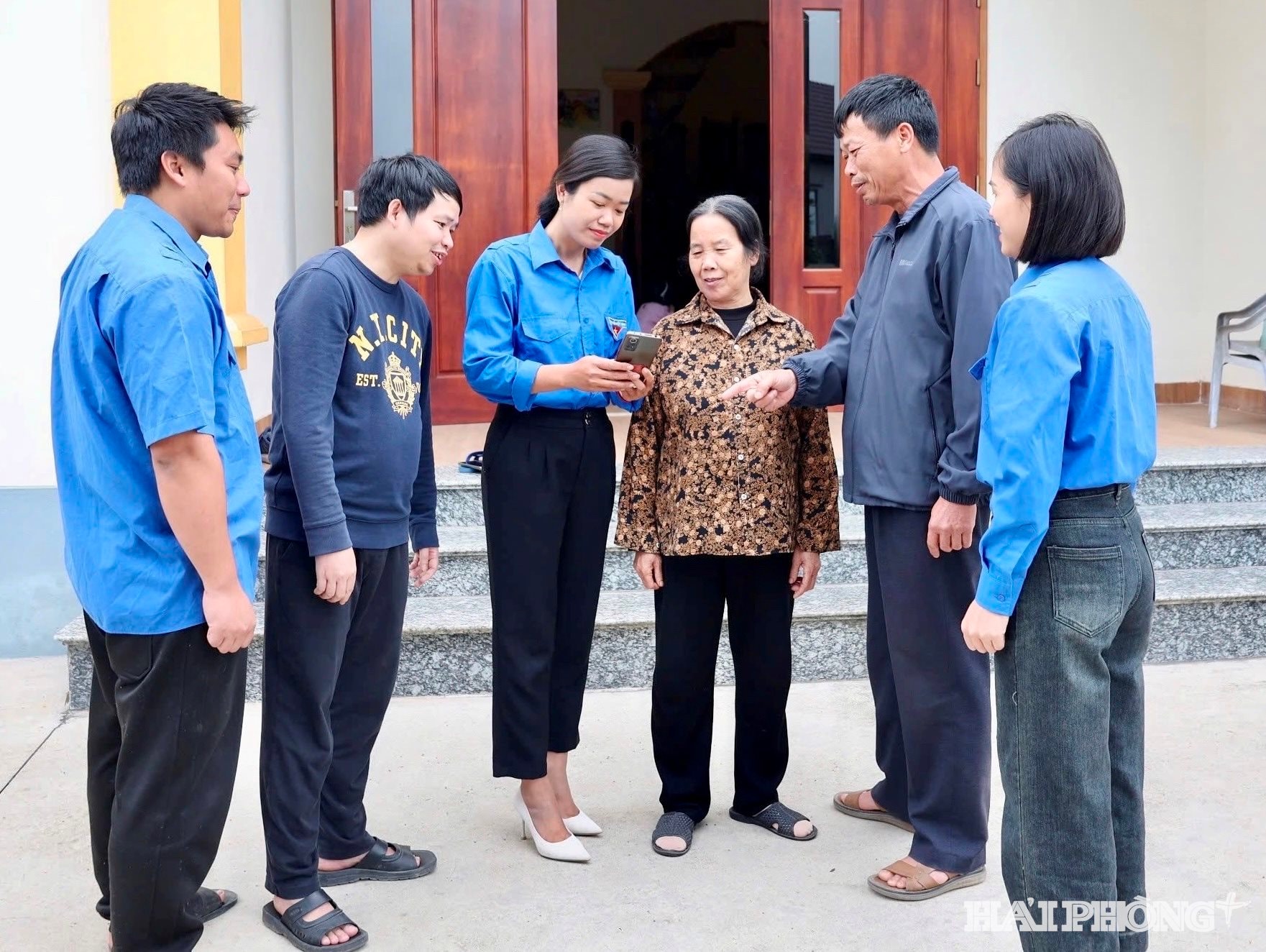Hai Phong is strongly promoting a ‘mass digital education’ campaign, contributing to the city’s goal of building a comprehensive digital society.

Determined digital transformation
Hai Phong's digital transformation activities, including the “mass digital education” campaign, have been carried out upon solid foundations laid by the Party and State's guidelines and policies on science, technology, innovation, and national digital transformation.
The city has issued various action programs and plans that clearly assign responsibilities to each level of government, sector, and locality, ensuring coordinated and unified implementation.
In mid-July, An Bien ward launched the model “Accompanying citizens in digital transformation” to help residents apply technology in handling administrative procedures. The initiative aims to bring digital technology and online public services closer to the people, reduce travel time and costs, and promote grassroots-level digital transformation.
As a pioneering locality in smart hamlet building in Ha Nam commune, Lang Can 3 hamlet has assigned its Youth Union branch to directly oversee and implement various digital transformation activities.
The branch set up a Digital Technology Team and Zalo groups managed by members of its Executive Board. These groups went door to door, helping residents use social media platforms, make online payments for electricity, clean water, and online shopping, and install apps such as VNeID, VssID, and mobile banking services.
Widespread impact

Digital transformation in Hai Phong has gone beyond slogans and is now deeply embedded in daily life, spreading to each official and citizen, and already delivering practical results.
According to a report by the Hai Phong Party Committee, the city has organized nearly 500 training courses to equip over 120,000 people with digital skills. More than 60,000 citizens have been certified for digital knowledge and skills via the VNeID platform.
At present, around 98% of public servants and employees in Hai Phong have knowledge of digital transformation and digital skills. About 97% of high school and university students are digitally skilled; 78% of adults possess basic digital knowledge and skills; and 82% of workers in enterprises and cooperatives have foundational knowledge of digital technology.
In the coming time, Hai Phong will continue to promote awareness campaigns and organize more community classes, especially targeted sessions for the elderly and people in remote areas. At the same time, the city will strengthen supervision efforts and collaborate with tech firms, schools, and social organizations to mobilize resources.
The city also plans to scale up effective digital transformation models and enhance the role of youth volunteers, women, and grassroots organizations in equipping people from all walks of life with digital skills.
PHAN ANH